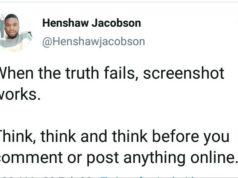In May 2015, from all the corners of the African continent, 80 promising young leaders (The Africa 80) were assembled in Cape Town, South Africa for the 25th Anniversary of the World Economic Forum on Africa. To date, this is the largest delegation of Global Shapers at any World Economic Forum meeting which is a testament to the Forum’s dedication to giving young people a voice in the discussions that will shape their future. I consider myself blessed to be part of Africa 80 and one of our biggest achievements as a group is the Africa 80 book. It was written by 80 co-authors expressing hopes for the future of Africa we would like to see. I picked up the Africa 80 book a few weeks ago, as I read through one page after the other, it sounded like a manifesto, a battleplan, an agenda for the future, and most importantly the role each and every one of us would play to make that agenda a reality.

Next week, 52 Global Shapers will be participating at the 2020 World Economic Forum Annual Meeting. The year’s meeting is significant because it is the first for the decade; one that will set the tone for discussions and action for the next 10 years. This will be a decade where the Global Shapers of today will become the Young Global Leaders, Mayors, Governors, Ministers, CEOs, Founders, and Civil Society Leaders of 2030. I have read through the packed (very packed) program schedule for the week and juxtaposed it with my reflections from The Africa 80 book. From my findings, these are the 5 key priorities for youth (and the rest of the world) at Davos 2020.
1. Unemployment
My first engagement with the World Economic Forum in 2015 was through #ShapingDavos, a series where 40 Global Shaper Hubs joined Davos via video conference to share their thoughts on one of the 10 topics for the week. The Abuja Global Shapers hosted one of the #ShapingDavos sessions on #ShapingWork — discussing the future of work and how to prepare the global workforce for the coming changes. I attended the #ShapingWork session with the Port Harcourt Hub’s Founding Curator, Bitebo Gogo, and I remember how excited we were when one of my tweets which contributed to the global conversation was read on the stage in Davos.
At that time in 2015, the International Labour Organization (ILO) said the global youth unemployment rate was above the pre-crisis level at 13 per cent. To quantify that rate, the ILO tells us that currently, more than 64 million young people don’t have jobs. 64 million dreams, 64 million destinies, all wasting away because we haven’t fully figured out a way around the unemployment challenge. According to the UNDP, 470 million jobs will be needed to absorb new entrants to the labour market between 2016 and 2030. What countries and regions will these jobs be needed most? Who will create them? What sectors will they emerge from? At PIND Foundation we are already beginning to explore answers to these questions through the Niger Delta Youth Employment Pathways project. I think it is everyone’s responsibility to find the answers to these questions, especially in this new decade. ‘The leaders of tomorrow’ cannot lead anyone if they’re unemployed.
At Davos 2020, The Future of Good Work session on Tuesday 21st January as well as Innovation for Impact: Discussing the Facts about the Future of Work on Wednesday 22nd January, are two out of the many side events that hope to tackle the challenge of unemployment.

2. Education
“People love to learn, what often turns them off is the way we educate them…” Sir Ken Robinson, one of my favorite thought leaders on the future of education, made this profound statement when I interviewed him a few years ago on my podcast, The Stroll Live. It is no longer breaking news that one of the major causes of unemployment is the outdated education system in most parts of the world.

Personally I have been fascinated by possible solutions to this challenge, especially in Nigeria, which is why I did not hesitate when I got an offer to Guest Lecture at Ken Saro Wiwa Polytechnic in 2017. My findings from the past 3 years — teaching over 600 students and co-authoring one book — reveal that a lot of positive results can be derived when we begin to find the right methods of teaching which Sir Ken Robinson was referring to. I find this infographic very helpful when I think of education in this new era.
Defining Education 4.0 on Wednesday, 22nd January and Join the Reskilling Revolution on Tuesday, 21st January are two sessions I’m looking forward to.

3. Data & Digitization
I finally saw The Great Hack a few days ago. One point that stuck with me, echoed by David Carroll, is that data right needs to be seen as a human right. Following the revelations about Cambridge Analytica in early 2018, many of us have become a lot more concerned about our data knowing that someone out there might have more than 50,000 data points about us and our behavior. Regulations like The General Data Protection Regulation (GDPR) have gone a long way to ensure accountability, but is this enough? What level of accountability do we need to demand from companies who mine data? How much is too much when it comes to giving out your personal data? These are some questions we really need to answer. Closely related to data privacy is cybersecurity. In the fourth industrial revolution, there will be rapid digitization of processes and systems, from your WhatsApp messages to private company documents in the cloud. Who is going to ensure the safety of all these?
Before we even go as far as digital security, what infrastructure has been put in place (especially by developing countries) to facilitate this new digital world? According to the International Renewable Energy Agency (IRENA), as of 2019 about 840 million people still lack access to electricity. To look on the bright side, there has been some progress considering that 1.2 billion were in the dark in 2010. However, the question is, how fast is this ‘progress’? Is it enough? What about internet access? According to Statista, global internet penetration (as of October 2019) is at 58%. This means a little below half of the world’s population still doesn’t have access to fast, cheap and reliable internet. These ones will never understand or experience the power of digitization if nothing is done. I remember the #InternetForAll campaign which Shapers started at the Forum’s meeting in Kigali 2016. We need to continue having these sorts of conversations.
At Davos 2020, Building Trust in Data Flows on Wednesday, January 22nd and Shaping the Future of the Digital Economy on Tuesday, 21st January will be great conversations to join.
4. Climate Change
All we have discussed prior to this point will be a joke if the issue of climate change is not given the utmost attention it requires. I could spend the entire word count left for this essay analyzing the arguments for and against climate change, and guess what, it will not even be enough to do justice to this subject.

Great Thunberg (17), Ayakha Melithafa (17), and Cruz Erdmann (14) are some of the teenage changemakers who are trying to draw the attention of the world to this urgent situation. However, even in the midst of prolonged bushfires, unsuccessful COP meetings, and irregular climate patterns what most folks have decided to argue about is semantics and if Greta’s tears were real or not. Really people? It’s bad enough that we had to be reminded by teenagers that the world is getting destroyed while we slumber and now we would still not do anything? We still have a small window to act, especially the developed and powerful nations who should show a good example for the rest of the world to follow.
Back home, the Port Harcourt Global Shapers in Nigeria have been advocating for action by the government and environment authorities on the current soot pollution in Port Harcourt, Rivers State. Leaders in business and government need to understand that there is no profit without people, and there are no people without the planet. Earth is our home (at least for now) and if we fold our arms and watch things get worse, we will only have ourselves to blame.
I’ll be following Forging a Path Toward a Common Future on Tuesday 21 Jan 2020 at 8:30–9:15 AM (CET) and Averting a Climate Apocalypse also on Tuesday 21 Jan 2020 at 1:00–1:45 PM (CET).
5. SDGs — The Decade of Action
I remember when I started working at the Office of the Special Adviser to the Governor of Rivers State on SDGs in 2016. During technical committee meetings then, we would often say, “well, yes we have 14 years to make this work… we have time, etc.” Fast forward to five years later, I’m almost in a panic when I think of the fact that we have just about 10 years left to meet the 17 Global Goals which we all agreed to in 2015. They say time really flies when you’re having fun, apparently, time also flies when you’re implementing the SDGs.

In an informal briefing to the UN Member States on the Decade of Action, Deputy United Nations Secretary-General, Amina J. Mohammed said, “The 2030 Agenda is a universal roadmap for the world we all want and need. There have been some remarkable engagement over the past four years — but we have not seen the deep transformative change that this Agenda requires. Across the world, people are expressing their frustration around issues that are central to the SDGs: inequality, the climate crisis, corruption, violence against women and more.”
“The Decade of Action is an opportunity to respond to those concerns, to course-correct, and to bring the SDG roadmap to life. Above all, it is an opportunity to unleash a new wave of implementation efforts that will deliver for people and the planet.”
This ‘new wave’ of implementation will also hit Davos 2020. Keep your eyes on Financing Roadmaps for Sustainable Development on Tuesday 21st January and A Decade to deliver the Global Goals on Friday 24th January.
_______________
Ultimately we hope that in this new decade, Davos will not just be a chance for world leaders to network and travel but concrete actions will be traced back to conversations started by the Forum. To make this work, millennials, and zoomers (Gen Zs) need to hold their leaders accountable; we need to speak, we need to act and we need to inspire others to act with us.
Learn more about the World Economic Forum Annual meeting



 ADVERTISE WITH US. Call or send a Whatsapp message 08070950313
ADVERTISE WITH US. Call or send a Whatsapp message 08070950313


 ADVERTISE WITH US. Call or send a Whatsapp message 08070950313
ADVERTISE WITH US. Call or send a Whatsapp message 08070950313






